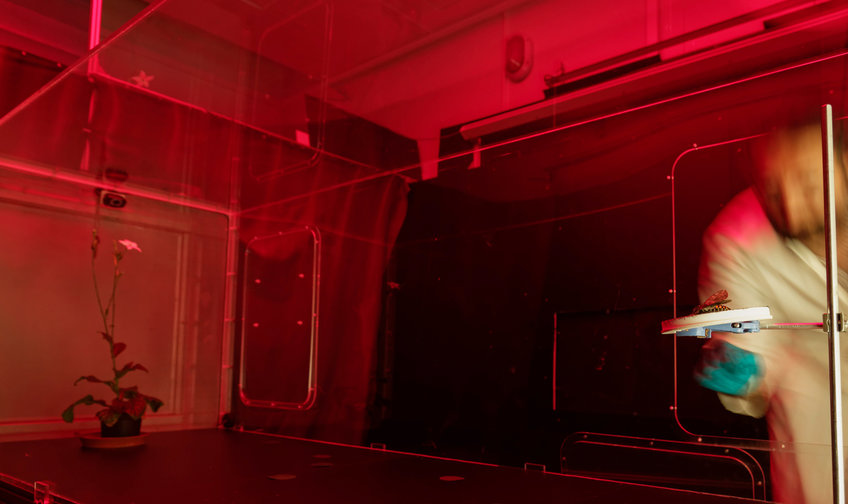
Research
Human activities have been shown to have a strong detrimental effect on insect populations. As insects are, to a very large extent, odour-driven creatures, it is of utmost importance to investigate how their olfactory-driven behaviours will be affected by the challenges imposed in the Anthropocene epoch. Climatic changes and atmospheric pollution have already begun to affect natural environmental odours, and thus insect odour-mediated behaviours associated with their essential resources. Such altered insect behaviour may change ecological interactions, alter biodiversity, and have large effects on natural communities. The abilities of insects, together with their microbiomes, to spread geographically and adapt to new niches are likewise affected by ongoing global, regional and local changes.
Additionally, in an era in which sustainable development is a necessity, altered insect behaviour presents new challenges for agriculture and forestry, affecting crop protection and ecosystem services, as well as for human health resulting from vector transmitted diseases, including malaria, dengue and hundreds of arbovirus-induced encephalitic illnesses worldwide. Each of these aspects are dependent on insect olfaction, and therefore sensitive to variations in the natural odour space.
In the coming decades, we will face rising temperatures with increasing frequencies of weather extremes, e.g. droughts and floods, as well as increasing levels of CO2 and pollutants, including ozone and nitric oxides (NOx). Recent findings suggest that pollutants can oxidize odours emitted from plants, and in doing so, can drastically reduce effective pollination). Intraspecific insect communication via sex- and aggregation pheromones are also negatively affected by air pollutants, diminishing insect reproductive success, as well as impacting the ability of natural enemies to locate their prey). Moreover, ozone directly affects the production and emission of volatiles from plants through oxidative stress, both qualitatively and quantitatively, and in combination with other biotic and abiotic stressors, e.g., warm temperatures and drought. However, the extent of the effects of all these Anthropogenic factors on odour landscapes and their detection by insects still remain to a large degree elusive.
Within this project, the three partners (LU, MP and SLU) will use complementary knowledge, skills and equipment to address this challenge through a novel approach. The three partners complement each other with expertise in different insect models; herbivores (bark beetles and moths), blood feeders (mosquitoes) and the best-established insect model, the vinegar fly. This will allow us to cover the individual insect interactions, as well as the evolutionary, ecological and mechanical aspects in a forward-looking perspective. Therefore, by studying these model systems, we will elucidate the effects of global change on all levels of insect chemical ecology. Specifically, we will investigate these effects in the context of:
1. anthropogenic impacts on olfaction;
2. adaptations and plasticity; and
3. host preference and shift.
The Max Planck Center will address this emerging and timely field of endeavour. The three partners will be provided with an unprecedented opportunity to combine state-of-the-art expertise and facilities. This will allow us to address general underlying adaptive behavioural, ecological and physiological mechanisms triggered by human derived climatic and atmospheric changes. In addition, the model insects will allow us to study the direct effects of these factors on the application of odours for insect control in a changing environment. As a result of this association, we will amass an evidence-based foundation regarding the impact of the human-made challenges to the environment that might be used for pest control innovations, and by policy makers for future decisions in agriculture, forestry and human health.